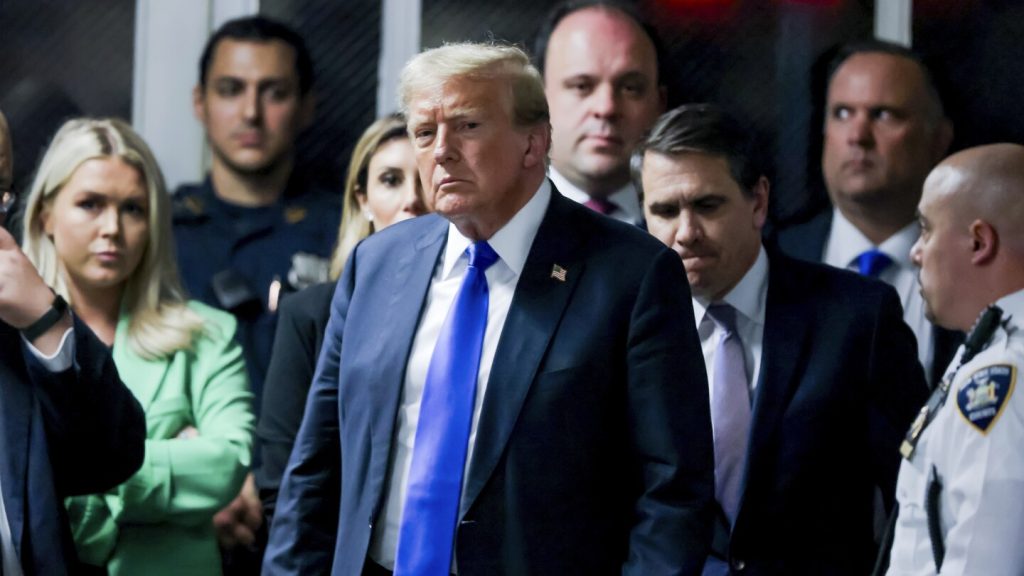Donald Trump’s recent conviction on 34 felony counts related to a hush money payment to Stormy Daniels marks the end of his trial but opens up a new chapter in the legal battle surrounding the former president. The sentencing date has been set for July 11, just days before Republicans are expected to select him as their nominee for the 2024 election. Despite his felony conviction, Trump remains eligible to vote in Florida as long as he stays out of prison in New York state, though the impact of his conviction on his political future is uncertain.
The real question now is whether Trump could face prison time as a result of his conviction. The charge of falsifying business records is a Class E felony in New York, punishable by up to four years behind bars. However, Judge Juan M. Merchan has the discretion to determine the punishment, and prison time is not guaranteed. It’s unclear how the judge will navigate the complexities of jailing a former president who is also running for office. Other potential penalties include fines, probation, or delaying punishment until the completion of the appeals process for Trump’s three other pending criminal cases.
Despite his conviction, Trump’s ability to continue his presidential campaign remains intact. He can still seek the presidency and vote for himself in Florida, demonstrating a commitment to his political aspirations despite legal challenges. The impact of his criminal conviction on the 2024 election remains unclear, with polling data showing that only a small percentage of his supporters would withdraw their backing in the event of a felony conviction. Both parties acknowledge that Trump’s political standing remains strong, even as he faces the prospect of a prison sentence and ongoing legal battles.
Following the verdict, Trump and his campaign have been preparing for potential appeals to challenge the conviction. His lawyers have raised objections to the charges and rulings in the trial, laying the groundwork for a legal challenge in New York appellate court. The defense team may argue bias on the part of the judge and limitations on expert testimony, as well as the presentation of graphic evidence during the trial. Despite efforts to undermine the case ahead of a potential conviction, Trump has avoided testifying in court and focused on rallying public support.
The defense’s strategy in the trial centered on challenging the credibility of key witnesses, particularly Michael Cohen, who implicated Trump in the hush money scheme. Trump’s lawyers attempted to discredit prosecution witnesses and limit their impact on the jury. However, the jury ultimately found Trump guilty on multiple felony charges, indicating a lack of persuasion by the defense’s arguments. Trump’s campaign has projected confidence despite the recent conviction, positioning itself to continue the legal battle through the appeals process while maintaining a focus on public opinion and voter support.















